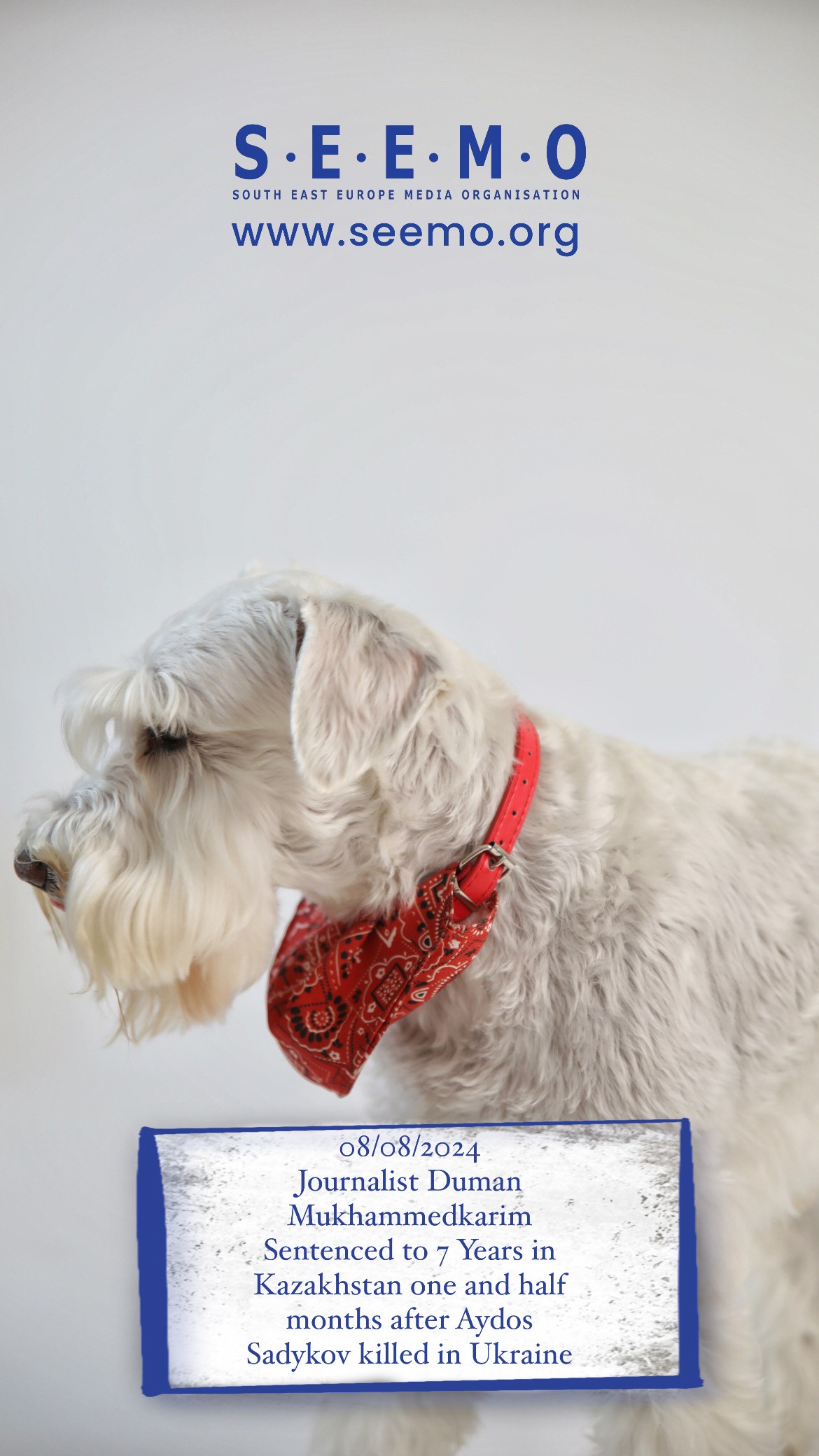On 2 August 2024, Kazakh journalist Duman Mukhammedkarim (Думан Мұхаммедкәрім) has been sentenced during a closed trial to seven years in prison by a court in Qonaev, (Қонаев) Kazakhstan, on charges of financing an extremist organization and participating in the activities of a banned group—charges he denies as politically motivated. In addition to his prison sentence, Mukhammedkarim has been barred from engaging in public activities for three years.
Mukhammedkarim, who operates the popular critical YouTube channel “Ne Deidi?” (What Do They Say? – https://www.youtube.com/@ND-arnasy/featured), was initially detained in June 2023 after conducting an online interview with a former banker and outspoken critic of the Kazakh government from an organisation that was labeled an extremist organization and banned in 2018. The charges against Mukhammedkarim stem from this interview and the sharing in his You Tube fundraising links. Despite these allegations, Mukhammedkarim has consistently maintained his innocence, arguing that his criticism of the government is aimed solely at fostering Kazakhstan’s development, which should not be criminalized.
His trial, which began on 12 February 2024, was marked by secrecy and accusations of mistreatment. After he reported allegedly being beaten by jail guards, the trial was temporarily postponed for an investigation, which was later dismissed due to a lack of evidence. The proceedings resumed behind closed doors, drawing criticism from both domestic and international human rights organizations.
This case is part of a broader pattern of repression in Kazakhstan, where the authorities have been criticized for stifling dissent.
Mukhammedkarim’s extensive reporting on the January 2022 protests in Kazakhstan, which resulted in at least 238 deaths, brought him to the attention of authorities. He was one of the few journalists to report from the epicenter of the unrest in Almaty (Алматы), Kazakhstan, documenting testimonies from victims’ families and those allegedly tortured by police. His work earned him a reputation as a vocal critic of the government, and his efforts to run as an independent candidate in the March 2023 parliamentary elections led to further legal troubles, including multiple administrative detentions.
The South East Europe Media Organisation (SEEMO) condemns the sentencing of journalist Duman Mukhammedkarim to seven years in prison by a court in Kazakhstan on charges that appear to be politically motivated. This harsh and unjust punishment, along with the banning of Mukhammedkarim from public activities, represents a severe violation of press freedom and a blatant attempt to silence critical voices in Kazakhstan. SEEMO will continue to monitor the situation closely and urges the Kazakh authorities to respect international standards of free expression and human rights.
You can read the previouse SEEMO article about this case here: https://seemo.org/ressources/23-07-2024-kazakh-journalist-duman-mukhammedkarim-hospitalized/
This court case came after killing of journalist and government critic Aydos Sadykov on 18 June 2024, who was shot in the head in Kyiv, Ukraine. Sadykov, ran a Kazakhstan government-critical YouTube channel.
The South East Europe Media Organisation (SEEMO) is a regional non-governmental, non profit network of editors, media executives and leading journalists in Southeast, South, East and Central Europe. SEEMO members are in Albania, Armenia, Azerbaijan, Belarus, Bosnia-Herzegovina, Bulgaria, Croatia, Cyprus, Czech Republic, Estonia, Georgia, Greece, Hungary, Kazakhstan, Kosovo, Kyrgyzstan, Latvia, Lithuania, Malta, Moldova (with the territory of Transdnestria), Montenegro, North Macedonia, Poland, Romania, Russia, Serbia, Slovakia, Slovenia, Tajikistan, Turkmenistan, Türkiye / Turkey, Ukraine and Uzbekistan. Austria, Italy, Vatican and San Marino have a special status in SEEMO. SEEMO has over 3000 individual members, and additional media as corporate members.
#fyp #mediafreedom #seemo #freespeech #southeasteuropemediaorganisation #ngo #journalist #kazakhstan #nedeidi

